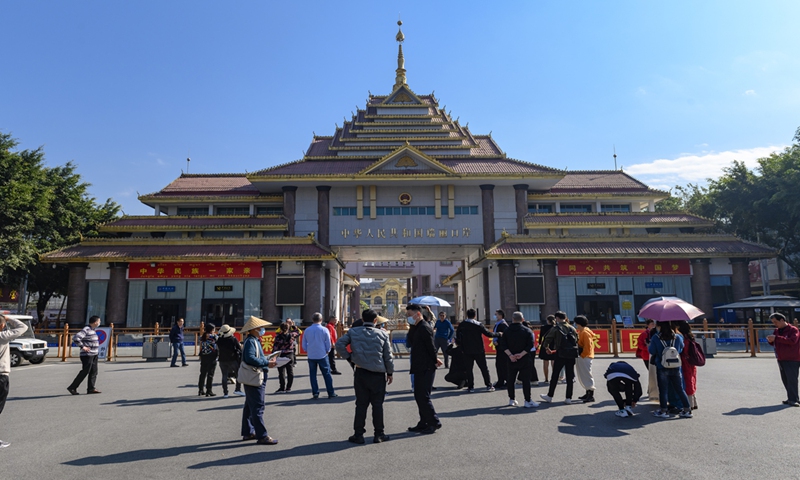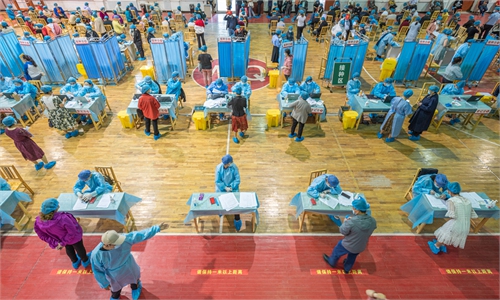China-Myanmar border city adjusts travel policy, offers subsidy amid latest flare-up

Ruili port in Southwest China's Yunnan Province links the country with Myanmar. Photo: VCG
China-Myanmar border city Ruili responded to public concerns over the policy of leaving Ruili and the improper management at quarantine places, reporting what the local government has recently done in COVID-19 prevention and border control.
Ruili in Southwest China's Yunnan Province updated the city-leaving policy at the press briefing on Tuesday. Dividing the whole city into three areas: red (high risk), yellow (middle risk) and green (low risk), Ruili said people in the green and yellow areas, if not for illness, bereavement and official business factors, can leave the city after respectively a 7-day and a 14-day self-funded quarantine.
For people who have already been sent into quarantine places, those suspected of infection risk and those regarded as close contacts are allowed to apply for leaving Ruili after respectively a 14-day and a 21-day self-funded quarantine.
The response came after its previous policy sparked concerns. A netizen left a message on local government's website on September 13 that many unemployed people in Ruili, including himself who lost his job for five months and has a family to feed, were stuck in such policy. Neither were they qualified to leave Ruili, nor could they get the subsidy. The netizen wished the local government could adjust the leaving policies.
In an adjustment, the government said those unable to pay for the quarantine costs will be arranged to plate houses for isolation by the city's epidemic prevention and control group.
To prevent the import, resurgence and outflow of the COVID-19 pandemic, Ruili has taken measures from multiple aspects. It has strengthened the cooperation with its pandemic-stricken neighbor Myanmar, donating 400,000 doses of COVID-19 vaccines, as well as anti-epidemic and engineering materials worth over 20 million yuan ($3.13 million) to Muse region, the biggest border crossing of Myanmar.
Ruili also accelerates the construction of border defense and control system to keep COVID-19 cases from transmitting into China, cracking down on boarder-related crimes and rectifying loopholes of border hazards.
Ruili safeguarded local people's livelihood by reducing 20-million-yuan rent for enterprises and providing fund for people in need. As for improper management at centralized quarantine places including poor logistic services, inadequate infrastructure and unreasonable cost on meals, the epidemic prevention and control group will keep improving people-oriented service and set six consultation hotlines for feedback of public under quarantine.
Ruili has so far experienced four waves of domestic outbreaks, highlighting the complexity of preventing the spread of COVID-19 in border cities.

